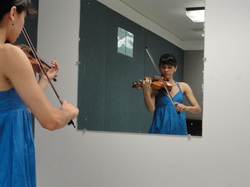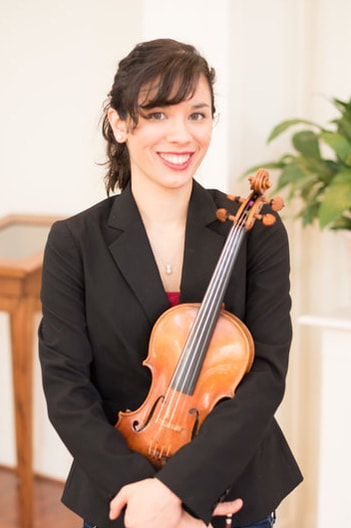
1. This should be a space designated solely for the practice of your music. Whether it is an entire room or just a corner of another room, nothing else should go on in this space except for practicing.
2. Freedom from distractions. Especially for young students, the television, cellular phone, computer, and all electronic devices should be shut off. If you use a metronome or tuning app, your phone should be set so it cannot receive calls or text messages during your practice session. Family members and roommates should know that when you are in your practice space, they are not to bother you. Ideally, one should be completely alone in the room or just with their practice helper (generally a parent).
3. Instrument, music, lesson notebook, and pencil. It is a good idea to keep all of your musical belongings in one place. This way, when going back and forth from lessons to school to rehearsal, you know exactly where to go to get everything. It also means that everything is handy and you do not need to frequently stop practicing to go hunt something down.
4. Music stand. All but the most elementary beginners will be reading music of some sort, and even the beginners may find it helpful to put their lesson notebooks on a music stand so they can read them without having to hold them. This stand should ensure that the music is at the eye level of the student. Spectacularly tall students may need a chair to place their stand on.
5. Mirror. While not absolutely essential, being able to watch oneself in the mirror while practicing is a very valuable practice technique, especially when working on posture or technique.
6. Recording device. Again, while not essential, being able to hear exactly what you are playing is invaluable. There is no substitute for really listening to yourself play.
7. Something inspirational. Whether it be a quote that you really like, pictures of your favorite composers or violinists, or a supportive card received from a loved one, put something a little personal in your practice area that will help motivate you to play even on the days where you might not feel like it. Once, to prepare for an orchestra audition, I printed out a picture of the conductor so I would get used to him looking at me when I played!

 RSS Feed
RSS Feed